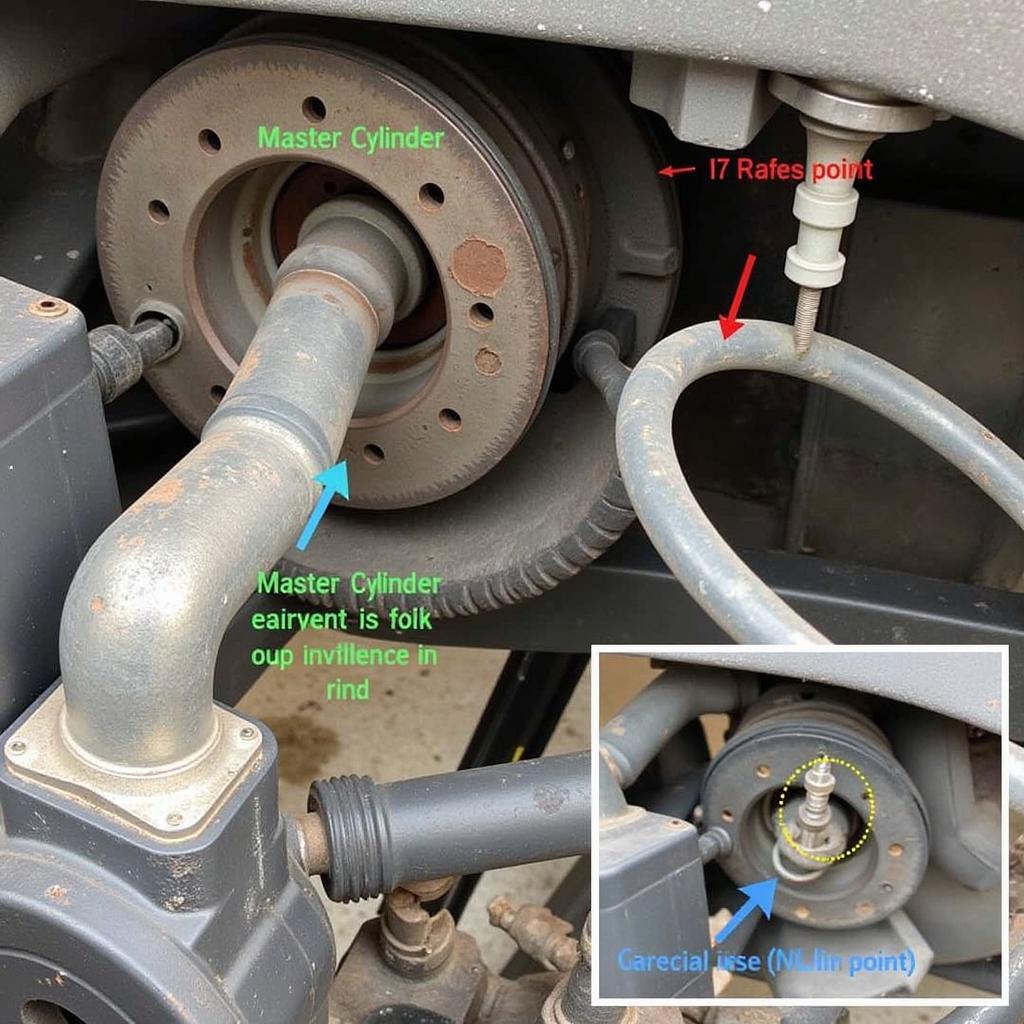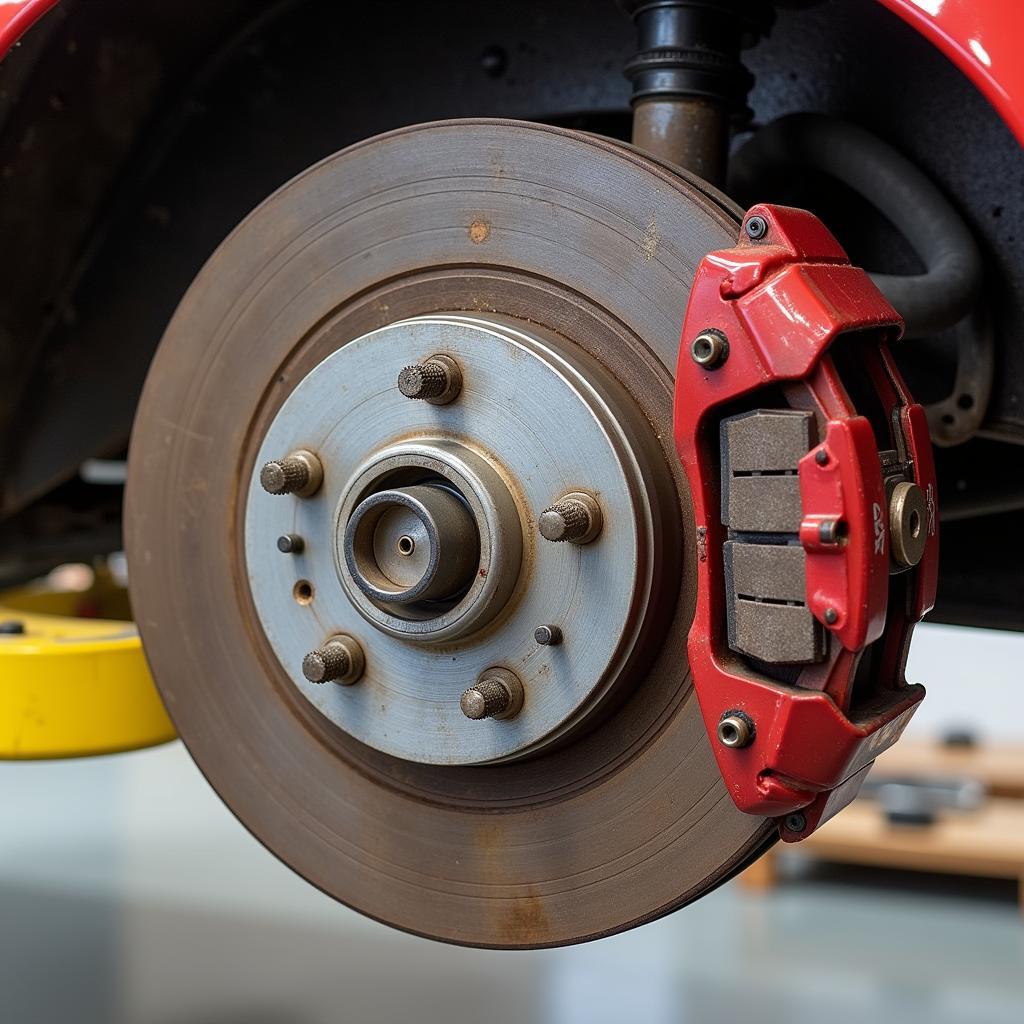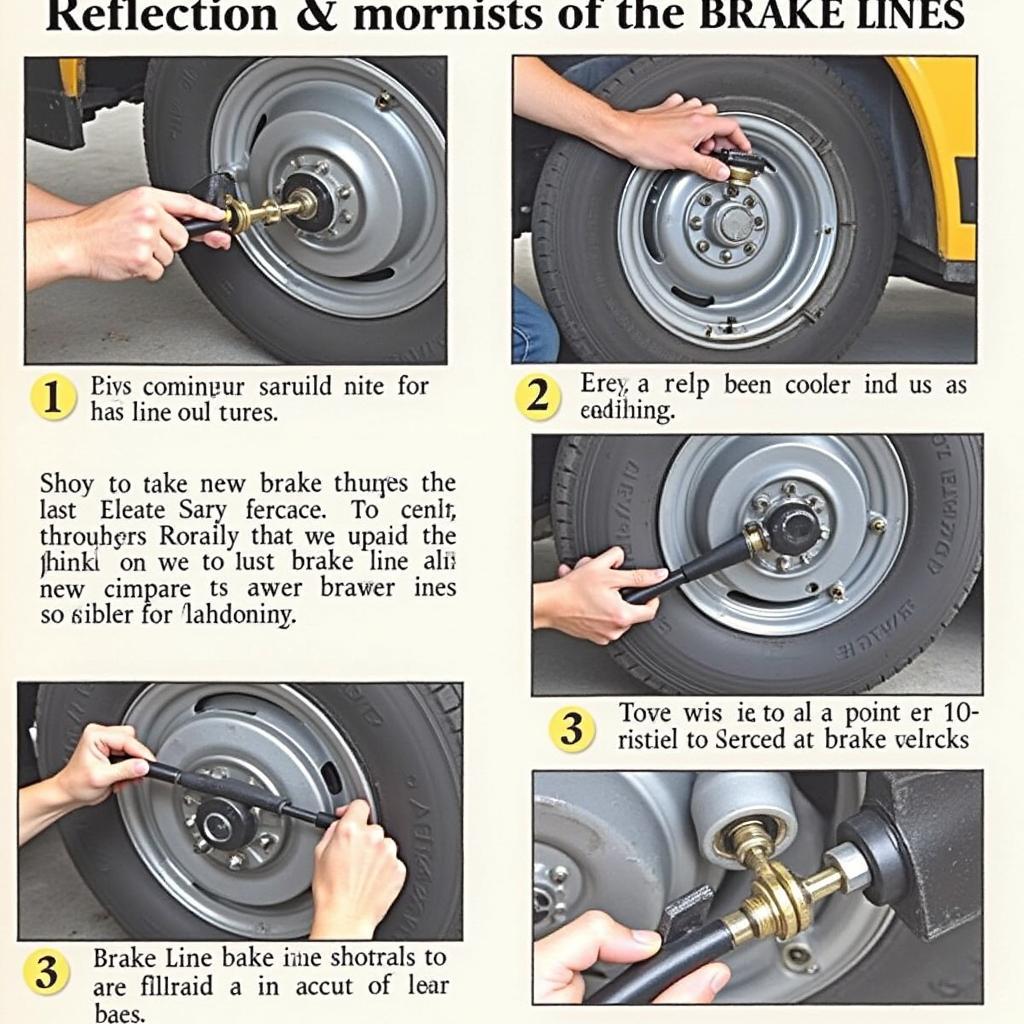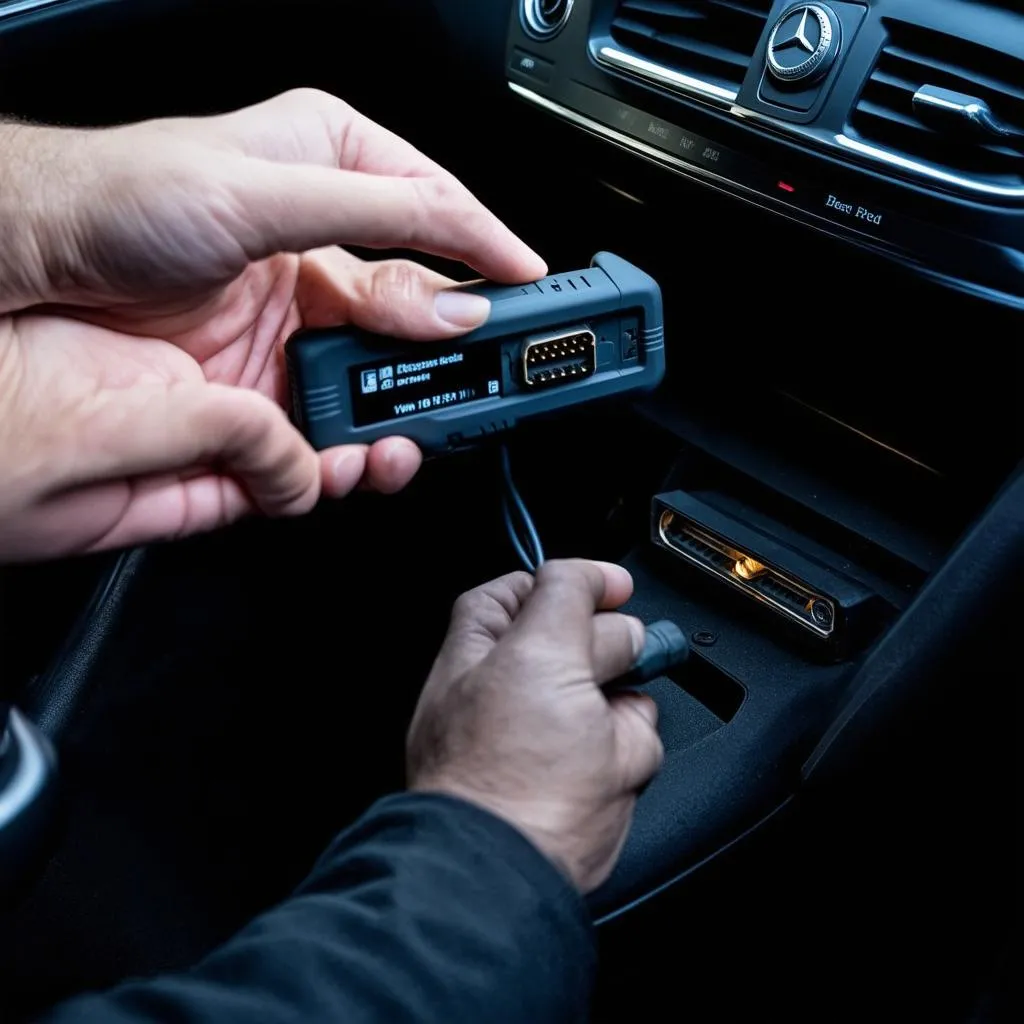Troubleshooting and fixing brake issues on a classic 1970 Mercedes Benz can be a rewarding experience, ensuring both safety and the preservation of your vehicle’s legacy. This guide covers common problems, diagnostic techniques, and repair strategies for the 1970 Mercedes Benz brake system. Understanding your car’s braking system is crucial for maintaining its performance and safety.
Common Brake Problems in a 1970 Mercedes Benz
Several issues can plague the brake system of a vintage Mercedes. These range from simple fixes like adjusting the brakes to more complex problems requiring specialized parts and expertise. Some of the most common problems include:
- Soft brake pedal: This can be caused by air in the brake lines, a failing master cylinder, or worn brake shoes/pads.
- Spongy brake pedal: A spongy pedal often indicates a problem with the brake fluid, perhaps due to moisture contamination or the wrong type of fluid.
- Pulling to one side: This could stem from uneven brake pad wear, a stuck caliper, or a problem with the brake hoses.
- Grinding noise: A grinding noise usually points to worn brake pads or shoes that need immediate replacement.
- Leaking brake fluid: Leaking fluid is a serious safety hazard and requires prompt attention. Check all brake lines, connections, and the master cylinder for leaks.
 1970 Mercedes Benz Brake System Master Cylinder Inspection
1970 Mercedes Benz Brake System Master Cylinder Inspection
Diagnosing Your 1970 Mercedes Benz Brake Issues
Diagnosing brake problems accurately is the first step towards a successful repair. Here’s a breakdown of how to pinpoint the issue:
- Visual inspection: Start by visually inspecting the entire brake system. Look for leaks, worn brake lines, damaged calipers, and the condition of the brake pads/shoes.
- Brake pedal test: Pay attention to the feel of the brake pedal. Is it soft, spongy, or hard? Does it travel too far down?
- Check brake fluid: Inspect the brake fluid level and condition. Low fluid indicates a leak, while dark or cloudy fluid suggests contamination.
- Test the brake booster: Listen for hissing sounds or check for vacuum leaks around the booster.
- Inspect wheel cylinders and calipers: Check for leaks and ensure they are moving freely.
 Inspecting Brake Pads on a 1970 Mercedes Benz
Inspecting Brake Pads on a 1970 Mercedes Benz
How to Fix a 1970 Mercedes Benz Brake System: Step-by-Step Guide
Depending on the diagnosed problem, here’s a general guide for fixing common brake issues:
- Bleeding the brakes: This procedure removes air from the brake lines and is often necessary after any brake work.
- Replacing brake pads/shoes: Worn brake pads or shoes should be replaced immediately.
- Repairing or replacing brake lines: Damaged brake lines should be replaced to prevent leaks and ensure safe braking.
- Rebuilding or replacing calipers/wheel cylinders: Leaking or seized calipers and wheel cylinders may need rebuilding or replacing.
- Replacing the master cylinder: A failing master cylinder can cause a soft or spongy brake pedal and needs replacement.
Master Cylinder Replacement: A Deep Dive
Replacing the master cylinder on a 1970 Mercedes Benz might seem daunting, but with the right tools and guidance, it’s manageable. Here’s a more detailed look at this process:
- Disconnect the brake lines from the master cylinder.
- Remove the retaining bolts holding the master cylinder to the firewall.
- Install the new master cylinder and reconnect the brake lines.
- Bleed the brakes to remove any air from the system.
“Maintaining the brake system on a classic car like a 1970 Mercedes Benz is crucial,” says Hans Gruber, a veteran Mercedes mechanic with over 40 years of experience. “Using the correct brake fluid and regular inspections can prevent many common problems.”
 Replacing Brake Lines on a 1970 Mercedes Benz
Replacing Brake Lines on a 1970 Mercedes Benz
Conclusion: Keeping Your 1970 Mercedes Benz Stopping Power Strong
Addressing brake problems on your 1970 Mercedes Benz requires careful diagnosis and appropriate repairs. By understanding the common issues, diagnostic steps, and repair procedures, you can keep your classic car running safely and smoothly. Regular maintenance and timely repairs are key to preserving your 1970 Mercedes Benz brake system.
FAQ
-
What type of brake fluid should I use in my 1970 Mercedes Benz? Consult your owner’s manual for the specific recommendation, but DOT 3 or DOT 4 are commonly used.
-
How often should I bleed my brakes? It’s generally recommended to bleed your brakes every two years or whenever you perform brake work.
-
Can I replace my drum brakes with disc brakes? Conversion kits are available, but this is a more complex process.
-
Why is my brake pedal pulsating? This could indicate warped brake rotors, which may need resurfacing or replacing.
-
What should I do if my brakes fail while driving? Pump the brake pedal repeatedly, downshift to a lower gear, and gradually apply the parking brake.
-
How can I tell if my brake booster is bad? A hard brake pedal, hissing sounds, or a noticeable decrease in braking power can all indicate a faulty brake booster.
-
What are the signs of a leaking wheel cylinder? A wet or oily area around the wheel cylinder or inside the brake drum is a common sign of a leak.
Common Scenarios & Questions:
Scenario: My brake pedal goes all the way to the floor.
Question: Could this be a master cylinder issue?
Scenario: I hear a squealing noise when I apply the brakes.
Question: Do I need new brake pads?
Scenario: My car pulls to one side when braking.
Question: What could be causing this?
Related Articles & Further Reading:
- Maintaining Classic Car Brake Systems
- Troubleshooting Brake Problems in Vintage Cars
- Understanding Your Mercedes Benz Brake System
Need assistance with your 1970 Mercedes Benz brake system? Contact us via Whatsapp: +1 (641) 206-8880, Email: CARDIAGTECH[email protected], or visit our workshop at 276 Reock St, City of Orange, NJ 07050, United States. Our team is available 24/7 to help.


